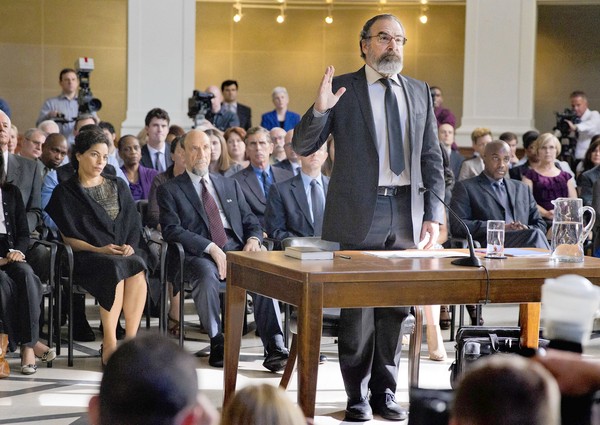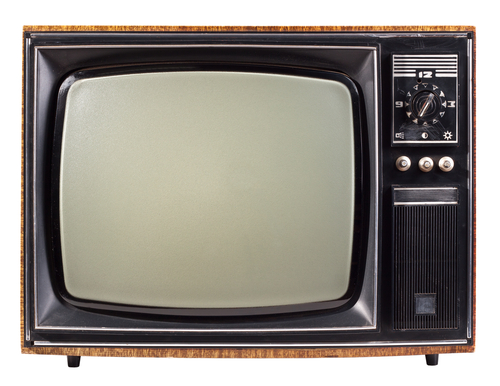There is no sign, for the moment (and the next moment, at least), of her fugitive love Nicholas Brody (Damian Lewis), the Marine-turned-terrorist-congressman-turned-triple-agent-cum-boyfriend, last seen as Carrie saw him to the Canadian border, after the bombing of CIA headquarters — the endgame of a complicated plot for which Brody had been framed. I say "endgame," but who knows, really?
Where the sophomore season, which some viewers accounted as crazy as its heroine (assassination by pacemaker!), began with action, the current one arrives as if in a still-settling cloud of dust. It is 58 days later, story-wise. Carrie, for her sins, is lying her head off to Congress, which wants answers. (Pesky Congress.) She's gone off her meds too, in the belief that they dulled her perception and that she otherwise would have spotted the plot behind the plot and all the Langley dead would still be alive.
"But it's all good," she tells her concerned father (James Rebhorn). "I'm medicating myself in other ways, exercise, mediation... I'm following a program... a doctor-supervised program... I read about him, for your information, in the Journal of Alternative Medicine." But he has seen the empty tequila bottles in the trash.
Saul Berenson (Mandy Patinkin), Carrie's rabbinical superior — reciting the Kaddish over the bodies at Langley when last seen — is now running the agency, with Dar Adal (F. Murray Abraham) at his shoulder, acting (and looking) very much a cartoon devil. They worry that Congress will actually try to shut down the CIA — Congress! — which is about the unlikeliest thing the series has proposed so far. (Though it's also standard to the genre to make the elected representatives of the people the enemy of honest policemen.) There is talk of buses, and who should or shouldn't be thrown under one.
The other Brodys, meanwhile, are getting on with life as national pariahs, with wife Jessica (Morena Baccarin) out looking for work. Daughter Dana (the increasingly excellent and relied upon Morgan Saylor) is about to be released from a recovery center, having slit her wrists in the space between seasons.
Like Carrie, of whom she seems to be a better-grounded reflection — better grounded, even having slit her wrists — she is living a sort of forbidden love: She met a boy (Sam Underwood) in rehab. Her scenes with him are touching in a refreshingly ordinary way (the circumstances notwithstanding); Dana may prove to be the secret heart of the series in the end.
"We're going to be under complete surveillance," she tells him.
"Your mom?"
"No. FBI."
Agent Peter Quinn (Rupert Friend), who last year declined to shoot Brody just to make things easier for his boss, also looks likely to increase in value this season, as a voice for professional standards and human conscience. New to the team, and hopefully sticking around, is Nazanin Boniadi as Fara, a head-scarfed Persian banking analyst, who arrives to help sort out some "intel," I think they call it.
What makes this spy show different from other spy shows? For all its occasional daffiness, it is in many ways a thing of its kind, with its troubled heroes and cool, overly clever villains concocting absurdly complicated plots. The short, correct answer is Claire Danes.
Since we first met her, as teenager Angela Chase in "My So-Called Life," Danes has been our communicator nonpareil of raw feeling — a master of the knit brow, trembling chin, the wet eye. I can't think of another actor who portrays extremity so convincingly; you credit the pain, and the joy, even as you mark and admire the work.
As much as I love what Lewis and Patinkin— as well as Baccarin and Saylor — do here, Danes is what makes "Homeland" remarkable. It might be a perfectly diverting show without her (though possibly a sillier-seeming one); but plenty of shows are perfectly diverting. She floods "Homeland" with ecstasy; she makes it all personal.
.gif)




.jpg)


